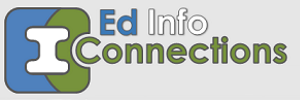
“Phil Piety’s book employs insights from the learning sciences to illuminate policies and practices for using information to improve American education. His analyses reveal deeply-held convictions by educators concerning uses of data and why some of the test-based policies of the educational data movement—including No Child Left Behind and value-added models for teacher evaluation—have turned out more challenging in practice than in theory. Piety highlights our need to understand the multi-layered social nature of education, recognize a number of fundamental characteristics of educational data, and to integrate design-based principles for enhancing the socio-technical activity we call schooling.”
—Roy Pea, David Jacks Professor of Education and Learning Sciences, Stanford University
“Unquestionably there has been a dramatic change in the collection and use of education data within a relatively short period of time. This critically important book highlights what constitutes the education data movement describing the vernacular of what every education researcher, practitioner, and policymaker needs to be aware of. Cautiously optimistic about the future, Piety points out the challenges educators will face as they struggle with their ever increasingly complex datasets and how they can be made useful for measuring learning, teacher quality, and organizational change.”
—Barbara Schneider is the John A. Hannah Chair and University Distinguished Professor in the College of Education at Michigan State University, and president of the American Educational Research Association, 2013-14.
“Everyone who wants to gain a better understanding of how data is transforming education should read this book. Piety’s analysis is comprehensive and covers every dimension of the American education system. He impressively connects the dots among the numerous institutions and actors that comprise the data movement. This book is a triumph.”
—Darrell West, Vice President and Director of the Center for Technology Innovation, Brookings Institution
“Piety brings a fresh perspective to ‘the educational data movement,’ situating its emergence historically, linking it to developments in various institutional fields, and framing it as a ‘sociotechnical revolution.’ Essential reading! Both proponents and opponents of the ‘data movement’ will learn from this book.”
—James P. Spillane, Spencer T. & Ann W. Olin Professor in Learning & Organizational Change, Northwestern University
For better or worse, many educational decisions that were once handled on a personal level by teachers or administrators now increasingly rely upon data and information. To be successful in this era, educators need to understand this broad sociotechnical revolution and how it is realigning traditional roles and responsibilities. In this book, the author draws on his unique background in learning sciences, education policy, and information systems to provide valuable insights for both policy and practice. The text discusses many current topics including technology-rich methods of teacher evaluation, big data and analytics, longitudinal data systems, open educational resources, blended and personalized learning models, and new designs for teaching.
This comprehensive book:
• Examines the social and historical context of the educational data movement as it unfolds across educational levels.
• Synthesizes different research traditions from inside and outside of education.
• Assesses the successes, challenges, and potential of data analytics.
• Helps educators and innovators design technology-rich solutions for greater student success.
• Discusses the catalytic role that foundations have played in making education a more informational and evidence-based practice.
Philip J. Piety is a national expert in educational data, founder of Ed Info Connections, a benefit corporation serving to improve the information educators’ use, and a faculty affiliate of Johns Hopkins University.

